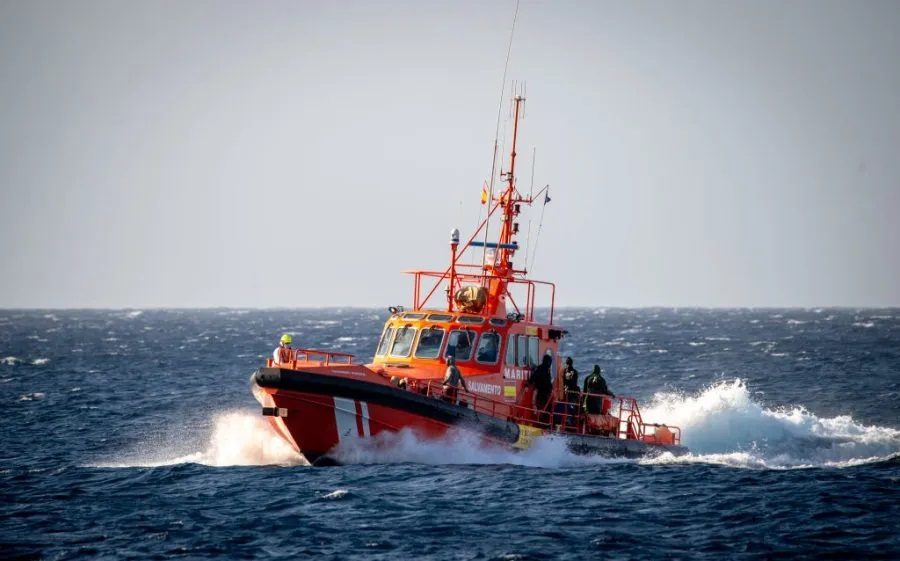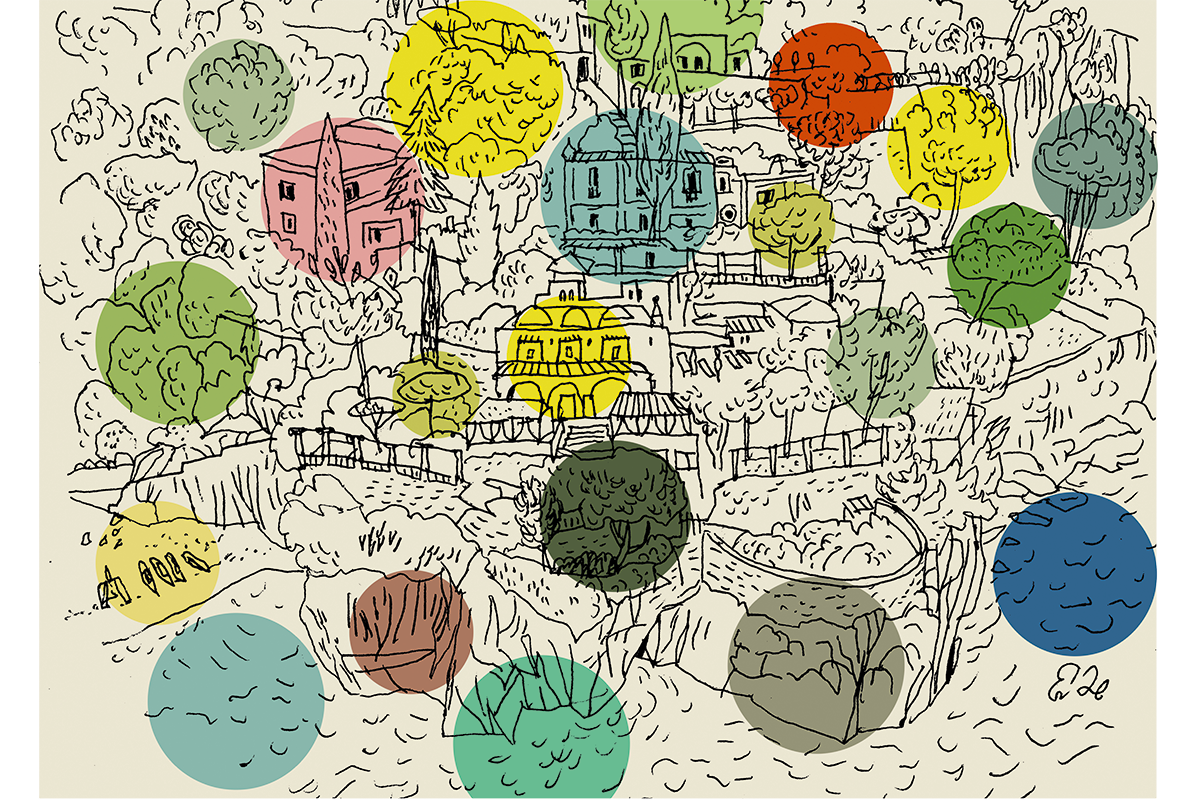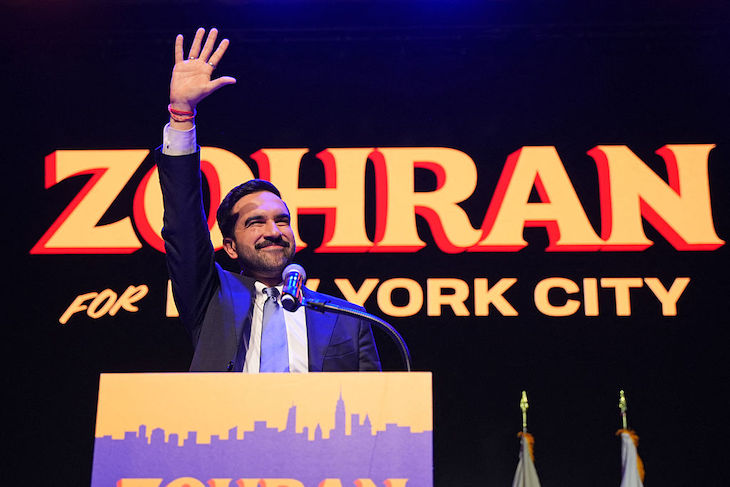The new year in Spain began much as the old one ended, with a huge influx of illegal immigrants arriving on its shores. Nearly 800 people from North and Sub-Saharan Africa landed on the Canary Islands between January 6 and 8.
That fleet of ten boats are an ominous sign of what Europe can expect in 2025. Spain has become the people smugglers’ route of choice: last year they ferried 63,970 migrants into Spanish territory, an increase of 12.5 percent on 2023. Of that number, more than 43,000 men, women and children landed in the Canaries.
Spain is seen by the people smugglers as the softest of touches
The islands are overwhelmed, no longer able to cope with the massive influx. Last week, Spain’s Minister for Territorial Policy, Ángel Víctor Torres, declared that “humanitarian response for minors is urgent.”
One policy has been the mandatory redistribution of minors elsewhere in Spain. Last week, however, the Balearic Islands — of which Majorca is the principal — announced that they will participate no longer in the scheme. “We are already overwhelmed with those arriving at our shores,” said the islands’ authorities.
Last month, Marga Prohens, president of the Balearic government, aired her concern to Madrid about the worsening situation. In particular, she highlighted the dramatic increase in arrivals from Algeria — more than 5,000 in 2024 — many of whom were unaccompanied minors. Next week, the president of the Canary Islands, Fernando Clavijo, will travel to Strasbourg to discuss the situation with EU officials. He would be better served going to Madrid. There lies the reason for Spain’s — and by extension — Europe’s new migrant crisis.
Pedro Sánchez is the prime minister who lost last year’s general election to the center-right but remained in power by forming a grubby coalition with Catalan separatists. As one would expect from the leader of the Socialist Workers’ Party, Sánchez is a fan of free movement. At last year’s congress of deputies, he declared that “we are the children of migration, not the parents of xenophobia!” In November, his government passed into law a bill that will cut the time needed to obtain residence permits and extend the duration of visas for job seekers. This is part of Sánchez’s plan to regularize 900,000 migrants over the next three years and demonstrate that Spain is an “open and prosperous” country and an example to the rest of Europe.
On a continent where governments who take a hardline on illegal immigration are increasingly being voted in, Spain is seen by the people smugglers as the softest of touches. Until recently, that was Italy’s status, but since Giorgia Meloni came to power in 2022 she has deterred the smugglers with a series of robust measures: last year, irregular arrivals on Italian soil fell by 60 percent.
Sánchez’s view of migrants is shared by Europe’s left-wing media, such as the French newspaper Le Monde, which praised his “humane” approach in an article last September. It quoted Sánchez explaining that “for Spain, migration is synonymous with wealth, development and prosperity. Contrary to the rhetoric which, unfortunately, is starting to gain ground in Europe, migration is not a problem.” It was presumptuous of Sánchez to speak on Spain’s behalf, given that he lost last year’s election to a center-right People’s Party, which had campaigned on a promise to restore greater order to the country’s borders, including by deploying the military.
Le Monde’s championing of Sánchez was published in the month when Bruno Retailleau was appointed France’s minister of the interior. He, like Marine Le Pen, believes there should be a referendum on immigration because, in his words, “there’s no phenomenon that has turned society upside down so much without the French people ever having had their say.”
Retailleau has already started doing everything in his power to tackle France’s migrant crisis, including the reinstatement of border controls with its immediate neighbors for six months until April. This policy began in November and is similar to the decision taken by Germany in September, shortly after a Syrian asylum attacker murdered three people in Solingen at a festival celebrating the city’s history. The perpetrator has links to the Islamic State, and Retailleau last week said one reason he wants to curb immigration is because of “Islamism.”
According to a recent report in the left-wing Spanish newspaper El Pais, Retailleau has been the subject of three recent internal memos within Spain’s interior ministry. These highlight the Frenchman’s determination to deport more illegal immigrants and the likely ramifications for Spain. One consequence is already being seen: an increase in serious crime in Catalonia as France refuses entry to migrants, usually those from North Africa who are likely to end up working for the drug cartels based in Marseille. “We risk witnessing a ping-pong match in which each country sends migrants or delinquents back to the other’s border,” said a union spokesman for the Catalan regional police force.
Immigration has been a source of tension between Spain and France for decades as it has within Europe. In 2002, Spain’s center-right government advocated a policy of suspending financial aid to developing countries which refused to combat people-smuggling gangs and take back their citizens. Britain supported the proposal but there was fierce opposition from other EU members, notably Sweden and France.
Britain’s foreign secretary at the time was Jack Straw, who urged the EU to do more to combat illegal immigration. “If citizens don’t have confidence in their democratic politicians to tackle this problem, sadly, extremist solutions will become more attractive,” he said.
Nearly a quarter of a century later, the confidence of Europeans in their leaders to tackle the problem is at rock bottom. Pedro Sánchez may view immigration as an enrichment but the majority of people on the continent share Retailleau’s view that it is an issue which has turned society upside down.

























